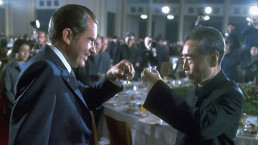Few spirits can compare to Maotai in terms of reputation and cultural significance. Maotai is a style of jiangxiang baijiu that originated in the village of Maotai, Guizhou Province, China. It is a clear and colourless liquor that has become a symbol of tradition, elegance, and cultural pride.
Maotai is created with few components, including sorghum, a wheat-based qū, and water from the Chishui River. It uses traditional Chinese fermentation, distillation, and ageing procedures to create a spirit with a distinct nutty, grain-forward, and savoury scent and flavour.The careful production process, which includes many fermentation and distillation phases, can take up to a year, demonstrating a commitment to craftsmanship.
Maotai’s history spans over a thousand years, with its legendary reputation reinforced during the Qing Dynasty. It received international recognition in 1915 at the Panama-Pacific International Exposition, where it was given a gold medal.Since then, Maotai has become a vital element of Chinese culture, frequently employed at official ceremonies and state banquets.
Maotai’s prestige stems from more than simply its distinct taste and production technique.It also concerns perception and historical relevance.Maotai was a favourite drink of Mao Zedong, the founding father of the People’s Republic of China, and was famously offered during state meals.Such effusive endorsements made Maotai the brand of choice for the elite, a must-have at business banquets, and a display of riches.
A variety of factors contribute to Maotai’s high pricing.Its reputation as a luxury spirit stems from its limited production and exquisite crafting.Furthermore, it is regarded a prestige symbol due to its high price and limited supply. This is part of Maotai’s marketing and sales strategy, which has helped it become not only the most valuable spirits brand in China, but also in the globe.
In conclusion, Maotai is more than a spirit. It is a symbol of Chinese cultural heritage, reflecting the country’s rich history and traditions. Despite its exorbitant price, it is nevertheless valued and appreciated, not just for its distinct flavour, but also for the cultural significance it represents. Maotai, whether served at official banquets or given as a dignified memento, is a liquid embodiment of Chinese cultural pride.



